Fostering Food Security Through Collaboration
By Sustainable Solano
Food insecurity is a big challenge in Solano County, where 13.7% of residents don’t have a stable food supply, compared with 11.6% for the state, according to Solano Public Health. In recent months, Sustainable Solano has been in conversation with organizations that are taking the initiative to move food from farms and gardens onto the plates of county residents. These organizations are seeking ways to collaborate toward supplying more people with the good food they need.
Sustainable Solano strives to build community around immediate personal connection, and an emphasis on healthy local food that provides greater food security and resilience is an important part of that connection. Our current food system doesn’t support this vision, which is why we applaud the efforts of organizations that are supporting ways to give on a personal level to people in need.
In the coming months, we hope to bring you more resources to share in the community and how you can get involved.
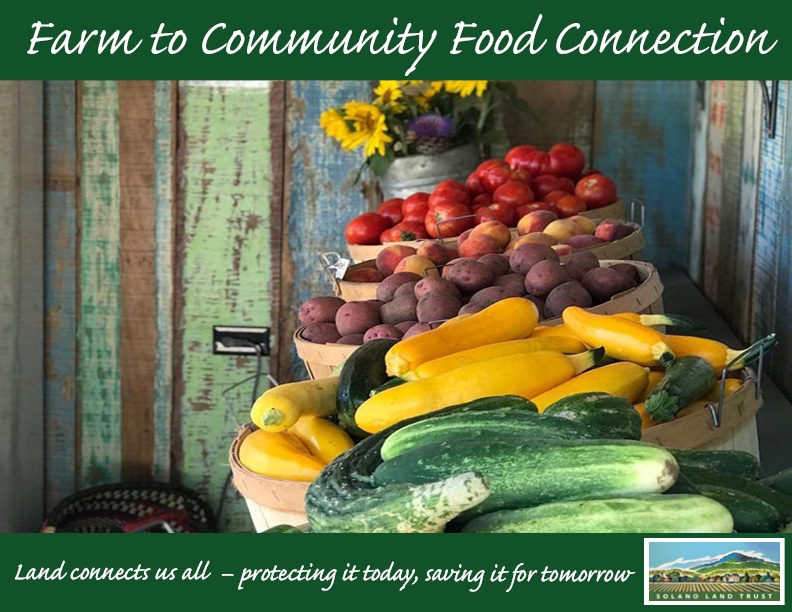
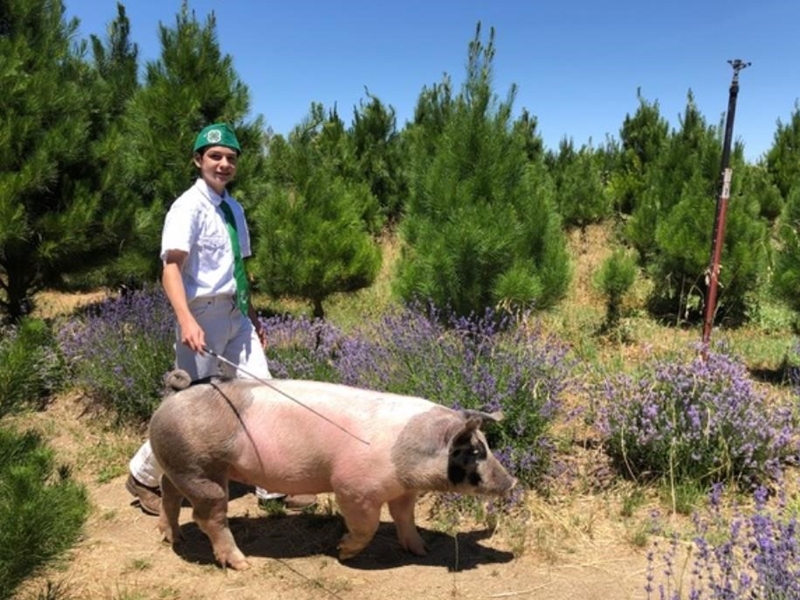
Images courtesy of Solano Land Trust
From Fair to Food
Solano Land Trust is known for its work preserving agricultural land and open space around Solano County, but the organization has recently expanded its efforts to include a farm-to-community food connection. It started when the COVID-19 restrictions canceled the Dixon May Fair and moved the Solano County Fair from a large public event to an online virtual event this year. While the livestock auctions for the fairs were able to transition to an online bid process, Solano Land Trust officials wanted to support the kids. The organization was able to purchase a steer and two pigs this year, coordinate the difficult task of processing those animals, and deliver the meat to the Food Bank of Contra Costa and Solano County.
The food bank reports increased food insecurity as a result of COVID-19. Even before the pandemic, an estimated 43,650 people did not have access to enough nutritious food in the county. The number is expected to grow by 23,690 people this year due to the effects of the pandemic, the Solano Land Trust and food bank report.
Solano Land Trust is finding other ways to distribute food to those in need. The organization has supplied more than 1,000 tomato, squash, melon, pepper and eggplant starts donated by Morningsun Herb Farm to the food bank and other community food distribution organizations. Solano Land Trust also has been collecting restricted donations used to purchase more than 3,600 pounds of produce from local farms. So far, the organization has bought produce from Eatwell Farm, Tenbrink Farms and Fully Belly Farms. The purchased food is then donated through the food bank and distributed through the mobile food pharmacy, which focuses on getting fresh produce to people whose doctors have prescribed that they eat healthy.
Learn more and donate to the Solano Land Trust’s Farm to Community Food Connection program here.
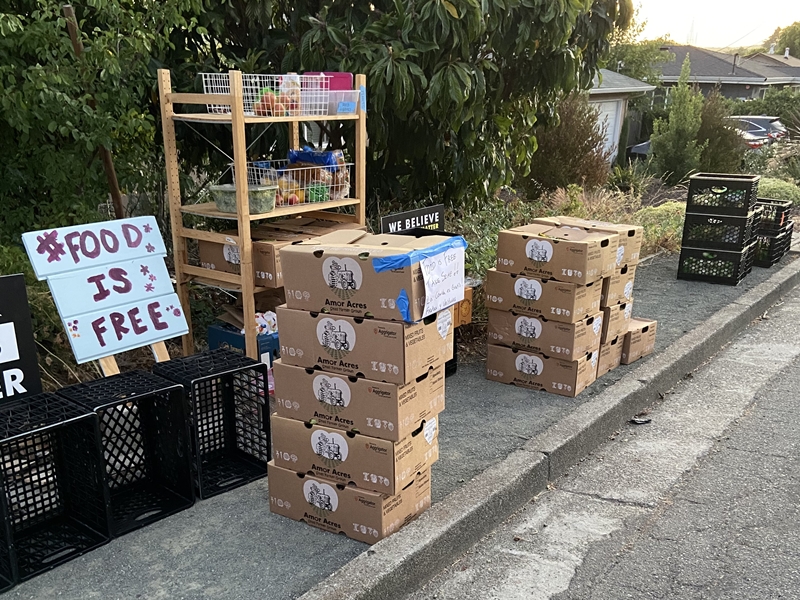
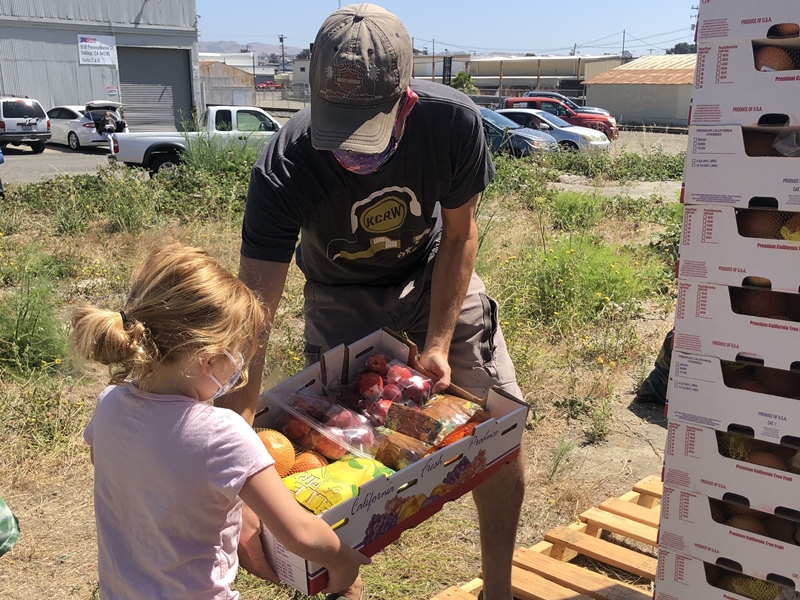
Images courtesy of Food is Free Solano
Food. For Free
Food is Free Solano has grown in leaps from when Heather Pierini started with a small stand in her front yard to distribute extra produce (Heather is one of Sustainable Solano’s Food Forest Keepers and recently expanded her garden so she could offer more to her community members). Since starting with that one stand and seeing the need for food in her community, Heather started coordinating other permanent and pop-up stands as Food is Free Benicia. Next thing we knew, she was arranging the donation and distribution of 4,000 gallons of milk! She has since changed the name to Food is Free Solano to reflect the wider scope of her vision. Working with local nonprofit WAHEO, she has been able to arrange distribution of food boxes through the USDA’s Farmers to Families food box program. So far, Food is Free Solano has distributed over 90,000 pounds of produce and 8,000 gallons of milk. Heather’s also been involved in promoting gleaning of fruit trees through starting the Solano Gleaning Initiative, with distribution through the Food is Free Solano stands.
Learn more about Food is Free Solano and Heather’s work and donate here.
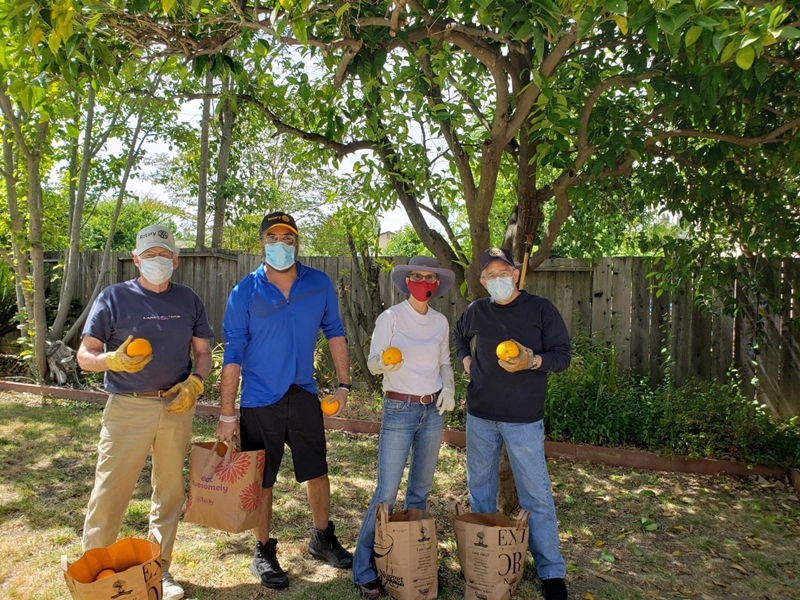
Image courtesy of Fairfield-Suisun Rotary Club
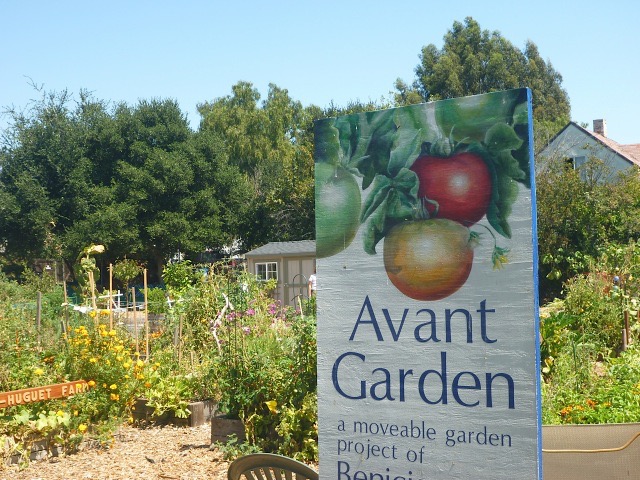
Sustainable Solano’s Avant Garden in Benicia
Gleaning Gets Going
Gleaning is gaining legs as people are looking for more sources of food that have been only sporadically utilized in Solano County. The Fairfield-Suisun Rotary Club saw the need for fresh produce among those receiving food assistance and identified gleaning as a way to serve that need. Through the new Rotary Feeds Families program, Rotary Club volunteers turn out to pick the fruit and then deliver it to the food bank or Meals on Wheels.
Learn more about the Rotary Club’s gleaning efforts here, and contact Kimber Smith if you have fruit to harvest. You can reach her at kimbersmith2010@gmail.com or 707-333-9830.
The next step in gleaning will be creating more coordination between the organizations that are offering gleaning services around the county and community food distribution organizations. This is an area Sustainable Solano hopes to support in the future in cooperation with the Solano Land Trust, the Rotary Club and Food is Free Solano.
Toward Greater Collaboration
Our dedication to sharing food within communities stretches back to the establishment of Sustainable Solano’s very first community garden in Benicia 21 years ago. Our community gardens have “share plots” that grow food for giving, and many of the community gardeners and food forest keepers we work with also give food as their gardens grow in abundance. Already this year, Avant Garden in downtown Benicia has donated around 130 pounds of squash, zucchini and peppers to organizations like Food is Free Solano and CAC. Many of the small to medium-sized local farms we work with offer opportunities to purchase donated boxes of produce through their Community Supported Agriculture programs, creating ways to support local farms and provide food for people who need it. All of these efforts are important, and we are excited about working with other organizations to coordinate all of our efforts toward the common goal of sharing more food with neighbors in various ways.
Learn more about Sustainable Solano’s work and donate here or contact us at info@sustainablesolano.org
If you or your organization is interested in joining these efforts, please reach out to us at info@sustainablesolano.org
You can find more local food resources here on our site, and more food access support and resources on our COVID-19/Community Resilience Resources page here.

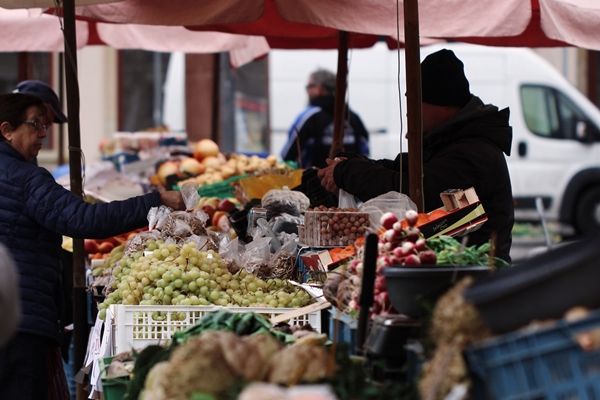
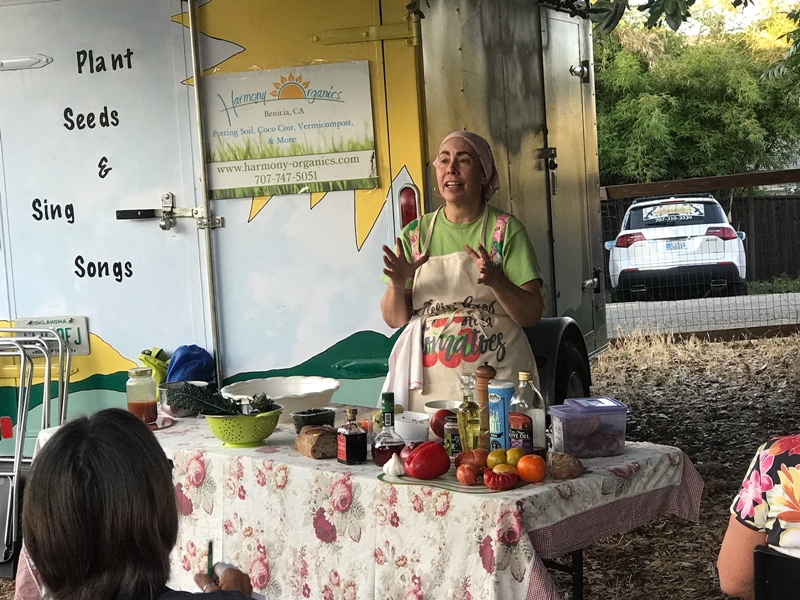
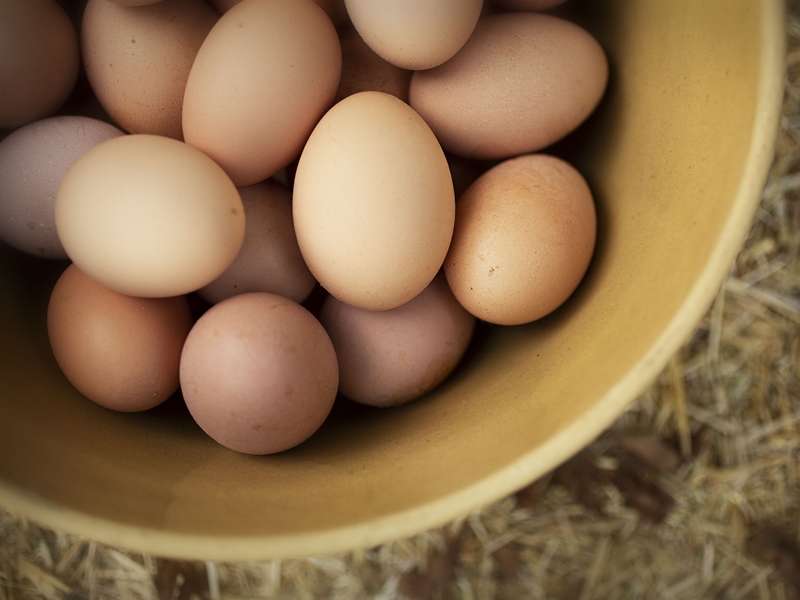

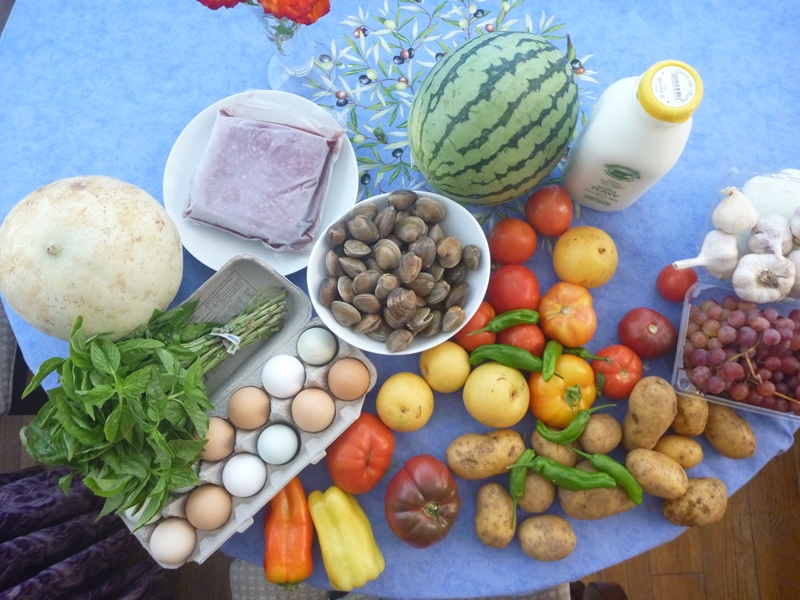
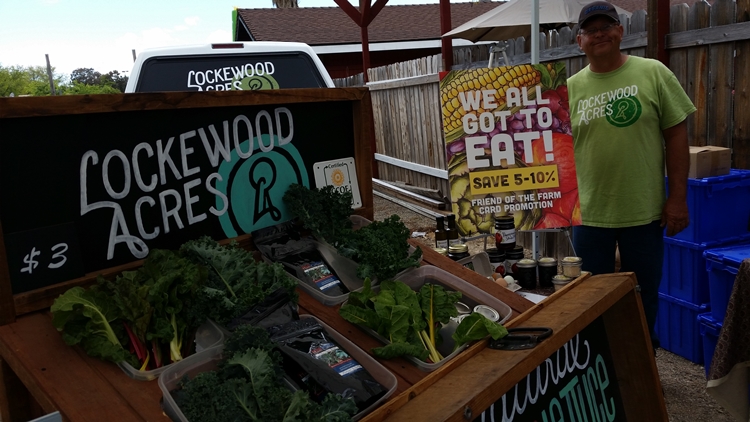
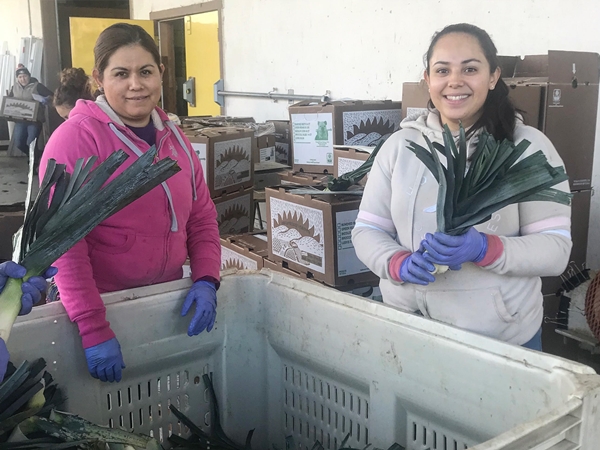
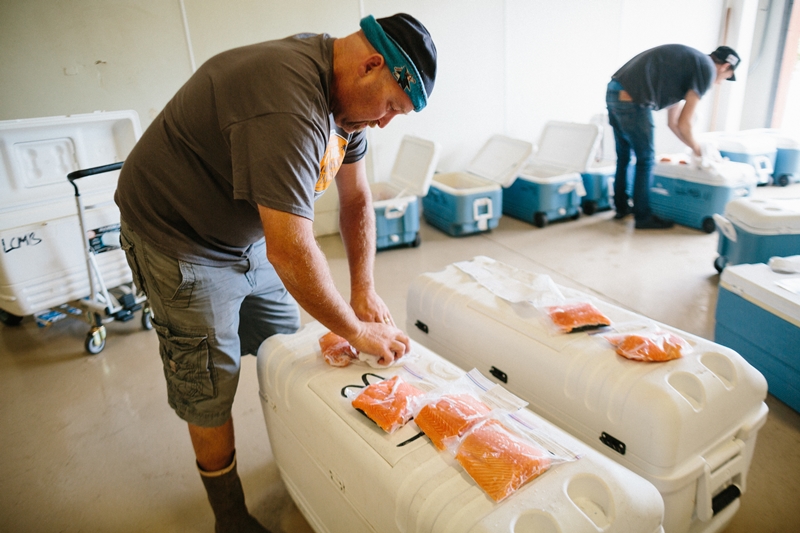

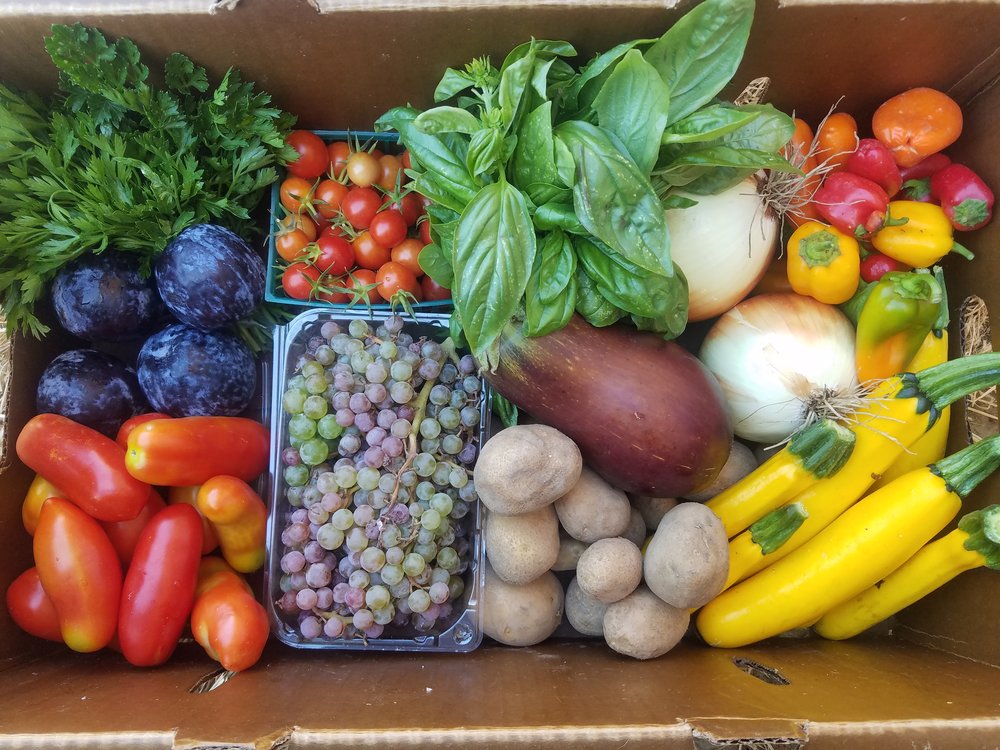

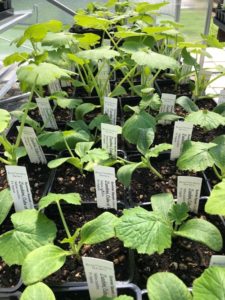 Please visit
Please visit 